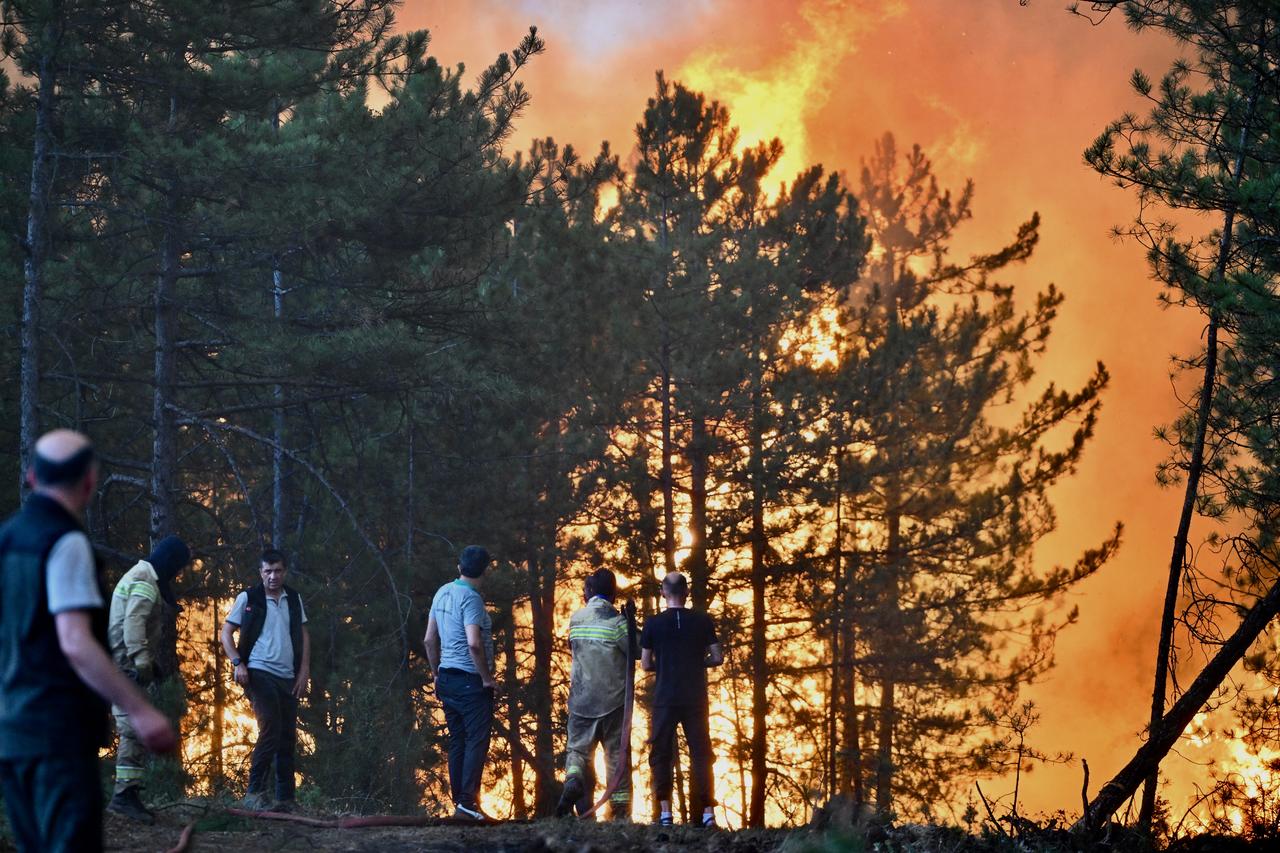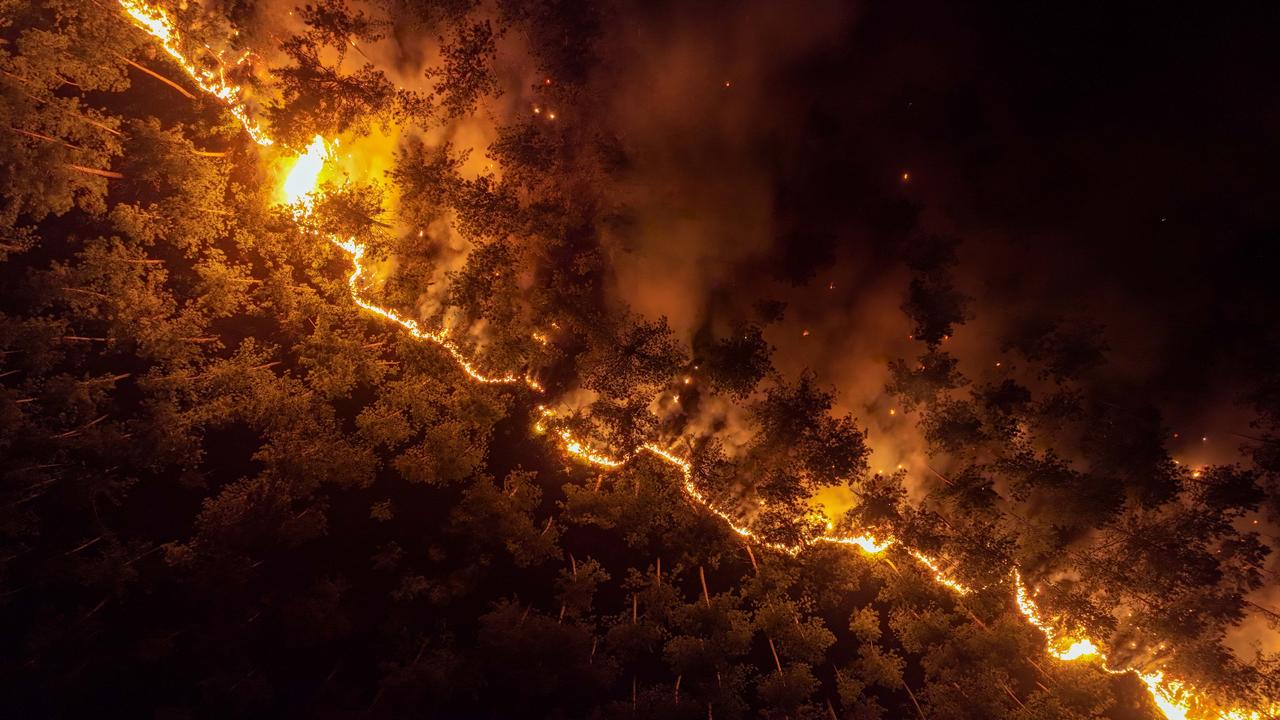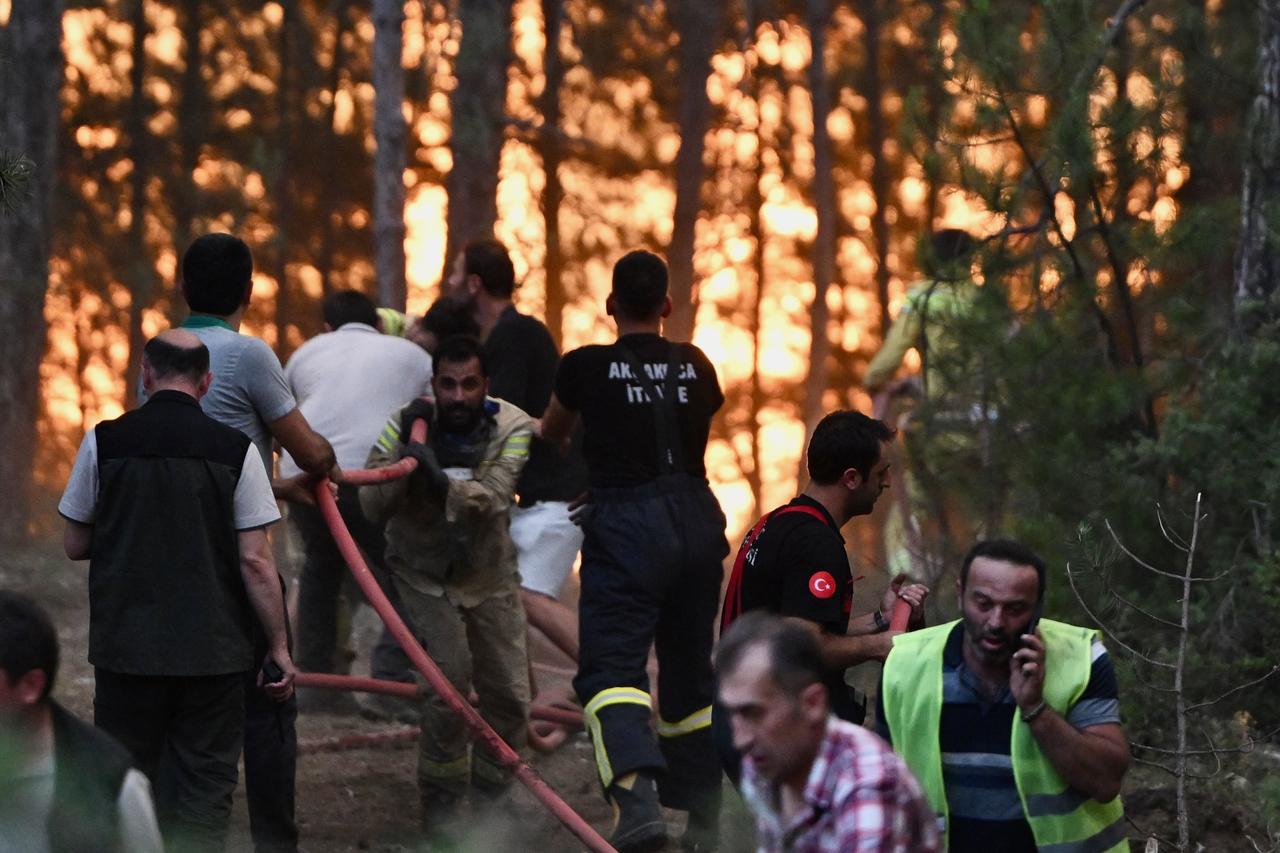
As wildfires continue to blaze across Türkiye, new data reveals that nearly 50% of these incidents are sparked by human negligence and carelessness. According to figures from the General Directorate of Forestry, between June 1 and 30 alone, 1,563 fires broke out across the country—612 of them in forested areas and 951 in agricultural zones. Notably, 499 of the forest fires were triggered by flames spreading from nearby farmland.
Forest engineering experts say many of these fires could be prevented through basic safety measures. Professor Doganay Tolunay, head of the Forest Engineering Department at Istanbul University-Cerrahpasa, cited extreme examples of negligence. In one case, a man accidentally started a forest fire by throwing a burning pillow out of a window after attempting to kill a tick with fire. Other cases involved welding in windy conditions, burning trash, and even beekeepers using fire to smoke hives.
Cigarette butts tossed from car windows, cooking corn or eggs with open flames near wooded areas, and the illegal practice of stubble burning (burning agricultural residue) were also among the common causes. Tolunay noted that many fires have even been started by sparks from poorly maintained vehicles or by friction from metal machinery in fields and along railways.

While neglect is the leading cause, some fires are started deliberately. “In 2022, someone set fire to a forest in Marmaris after an argument with his father,” Tolunay recalled. There were even past cases where children set fires just to see firefighting helicopters arrive.
The professor emphasized that 90% of all forest fires in Türkiye are human-induced. Annual wildfire numbers have risen significantly—from around 1,500 in the 1990s to 2,700 in the past decade, with 3,800 cases recorded in 2024 alone. On some days, as many as 100 separate fires have been reported.
Tolunay urged citizens to take personal responsibility, stressing that even minor activities like striking a rock with a hammer could ignite a fire in dry conditions. He pointed to a case in Spain where a spark caused by digging a hole for tree planting destroyed thousands of hectares.
He added that while firefighting capacity has grown—with 105 helicopters, 27 airplanes, and 14 drones now deployed compared to only 35 helicopters and three aircraft in 2021—efforts must prioritize prevention. The number of firefighting personnel has also been increased in recent years.
Tolunay warned that burned ecosystems take decades to recover, and wildfires not only destroy forests but also pollute the environment, disrupt food chains, and undermine efforts to combat climate change.

Merih Goltas, also from Istanbul University-Cerrahpasa, echoed the importance of prevention, noting that legal enforcement and public education could significantly reduce fire incidents.
“Around 50% of fires are caused by negligence, 10% are intentional, another 10% are due to natural causes like lightning, and the remaining 30% have unknown origins,” he said.
He emphasized the role of topography, climate, and human activity in shaping wildfire risks. Careless behaviors such as throwing cigarette butts from vehicles or neglecting safety during picnics have contributed to fire outbreaks.
The impact of climate change has made it even more critical to act. Goltas recalled that before 2021, Türkiye’s annual average area affected by wildfires was about 10,000 hectares. In 2021 alone, that number surged to 140,000 hectares—an amount equivalent to 14 years’ worth of previous damage. These “mega fires” are now a growing global concern.
Goltas explained that forest arson is the only crime in Türkiye not eligible for amnesty under the Constitution. Even accidental fires caused by negligence carry legal consequences, including prison sentences.
He also addressed public confusion over certain firefighting techniques. In some cases, trained forestry personnel intentionally set “counterfires” to stop a wildfire from advancing. However, a misunderstanding of this strategy has led to unwarranted backlash against firefighting crews on the ground.
Türkiye’s General Directorate of Forestry has trained and equipped 131,000 volunteers to assist during fire emergencies under official guidance, combining both theoretical and hands-on instruction.
As the wildfire threat continues to grow, experts insist that preventing fires before they start remains the most effective line of defense.